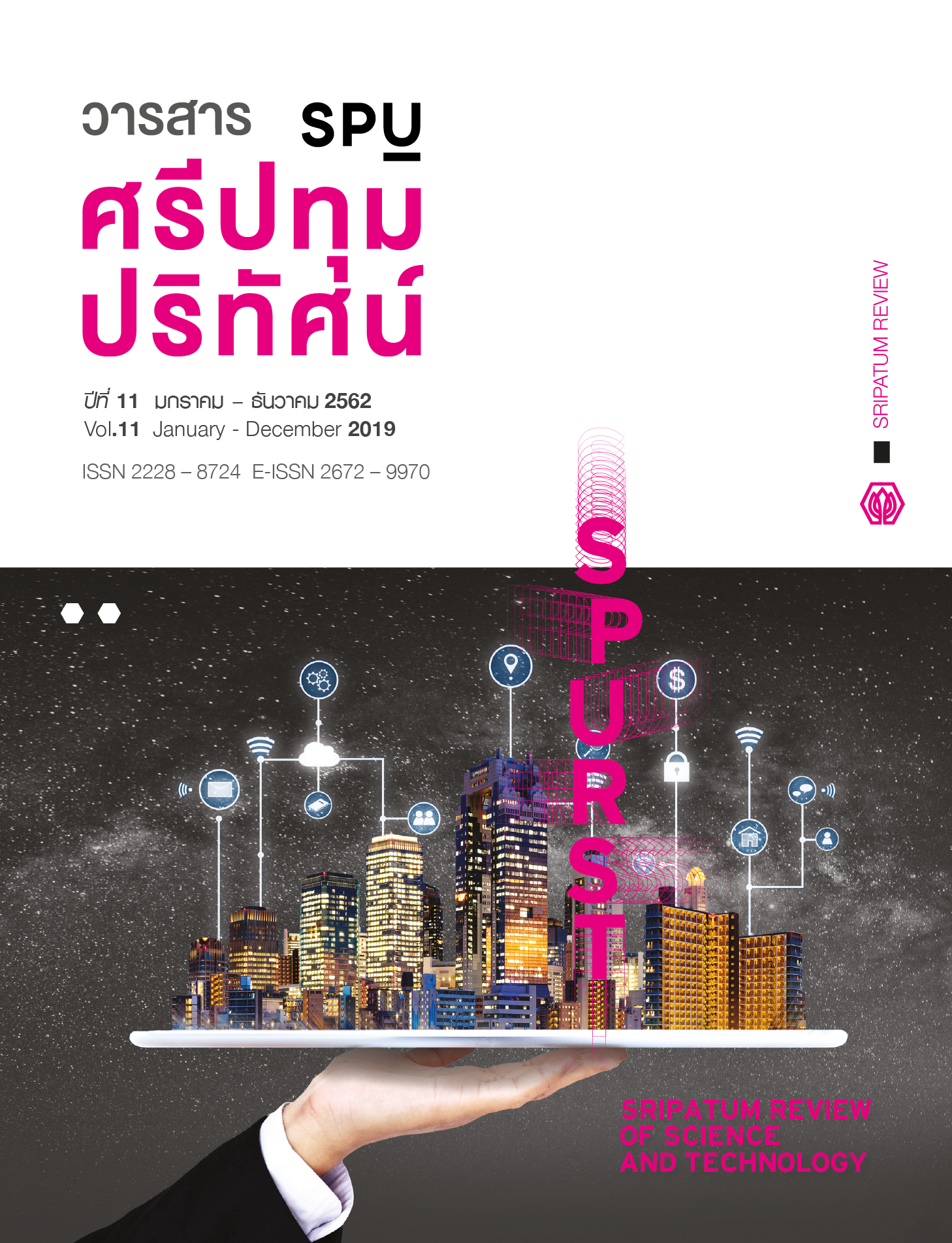ผลการเรียนรู้แบบยูบิควิตัสด้วยการเรียนรู้แบบนำตนเองที่มีต่อผลการเรียนรู้ และพฤติกรรมการอ่านของนักศึกษาระดับอุดมศึกษา (The Effect of Ubiquitous Learning with Self-Directed Learning Affecting Learning and Reading Behaviors of Higher Education)
Main Article Content
Abstract
The objectives of this research were (1) to develop a ubiquitous learning with self-directed learning model affecting learning achievement and reading behaviors of higher education students; (2) to study the learning achievement and reading behaviors of higher education students who learned under the ubiquitous learning with self-directed learning model; and (3) to study the students’ satisfaction with ubiquitous learning with self-directed learning. The research sample consisted of 35 purposively selected third year undergraduate students of the Faculty of Technical Education, Rajamangala University of Technology Thanyaburi, who enrolled in the Instructional Package Course during the first semester of the 2017 academic year. The research instruments were a quality evaluation form for the ubiquitous learning with self-directed learning model, a learning achievement test, a reading behavior evaluation form, and a scale to assess student’s satisfaction. The data were analyzed using the mean, standard deviation, and t-test for independent samples.
The results showed that (1) the ubiquitous learning with self-directed learning model as a whole was appropriate at the high level, with the overall appropriation rating mean of 4.36 which met the pre-determined criterion; also, it was efficient at 80.60/82.20; (2) the learning achievement scores of the experimental group students who learned under the ubiquitous learning with self-directed learning model were significantly higher than the counterpart scores of the control group students, who did not learn under such model, at the .05 level of statistical significance; also, the post-learning reading behaviors of the experimental group students were significantly higher than their pre-learning counterpart behaviors, with the reading behavior rating mean of 4.12; and (3) the students were satisfied with the ubiquitous learning with self-directed learning model at the high level, with the satisfactory rating mean of 3.83.
Article Details
References
Chaichana, K. (2016). Development of the Ubiquitous Learning Environment Model to Promote the Problem Solving Thinking Skills of Vocational Education Students. Dissertation of the Degree of Philosophy Program in Computer Education, Rajabhat Mahasarakham University. (in Thai)
Chalermkiattikhul, P. (2011). Application of social network for human resource recruitment. Executive Journal, 4, 1, 220-230. (in Thai)
Fisher, M., King J. and Tague, G. (2001). Development of the Self-directed Learning Readiness Scale for nursing education. Nurse Education today, 7, 21, 516-525.
Hiemstra, R. and Brockett, R. G. (1994). "From behaviorism to Humanism: incorporating self - direction in learning concepts into the instructional Design process". in New Ideas about Self - Directed Learning. Oklahoma Research Center for Continuing Professional and Higher Education of the University of Oklahoma.
Premsmith, J. (2016). Challenge-Based Learning Management System on Ubiquitous Cloud Environment to Enhance Real-World Problem-Solving Skills for Undergraduate Students. Dissertation of the Degree of Philosophy Program in Information and Communication Technology. Bangkok: King Mongkut's University of Technology North Bangkok. (in Thai)
National Education Act BE 2542. (2000). Bangkok: Winyuchon. (in Thai)
Norkeawboon, T. (2016). Learning management system development according to ubiquitous learning for vocational education. Dissertation of the Degree of Philosophy Program in Technological Education. Bangkok: King Mongkut's University of Technology North Bangkok. (in Thai)
Office of the National Education Commission. (2002). National Education Act BE 2542 (1999) and Amendments (Second National Education Act BE 2545 (2002). Bangkok: Office of the Education Council. (in Thai)
Phumeechanya, N. (2014). A problem-based ubiquitous scaffold learning system to enhance problem-solving skills and context awareness. Dissertation of the Degree of Philosophy Program in Information and Communication Technology. Bangkok: King Mongkut's University of Technology North Bangkok. (in Thai)
Paje, S. and Tavigulasub, W. (2016). Development of a ubiquitous instructional system for upper secondary students in upper northern Thailand. Journal of Humanities and Social Sciences Thonburi University, 10, 23, 3-23. (in Thai)
Skager, R. (1978). Lifelong Education and Evaluation Practice. Oxford: Frankfurt Unesco Institute for Education.
The Publishers and Booksellers Association of Thailand. (2015). The study of behavior reading and buying books of
Thai people. [Online]. Retrieved January 11, 2016, from: https://www.prachachat.net/news_detail.php?newsid=1424681826 (in Thai)
TK Park. (2016). The results of a reading survey with some shocking and facts. [Online]. Retrieved May 15, 2016, from: https://www.tkpark.or.th/tha/articles_detail/261/
Weiser, M. (1991). Some computer science issues in ubiquitous Computing. Communications of the ACM. [Online]. Retrieved January 11, 2016, from: http://www.ascilite.org.au/conferences/perth04/procs/jones.html
Weiser, M. (2009). The Computer for the 21 st Century. [Online]. Retrieved January 11, 2016, from: http://nano.xerox.com/hypertext/weiser/SciAmDraft3.


